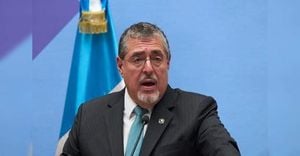Andrej Karpathy isn't a stranger to pushing boundaries. His latest venture, Eureka Labs, aims to revolutionize education through artificial intelligence. With a distinguished background that includes co-founding OpenAI and serving as Tesla's Director of AI, Karpathy has consistently been at the forefront of AI and technological innovation. Now, he turns his focus to education, striving to make learning more accessible, comprehensive, and engaging.
On July 16th, Karpathy revealed Eureka Labs with a post on X (formerly Twitter): "Eureka Labs will be a 'new kind of school that is AI native,' where an AI teaching assistant will help guide students." The goal is audacious—creating a platform that effectively marries the expertise of passionate human educators with the infinite potential of AI.
Karpathy elaborated on this vision by pointing out the scarcity of experts who can provide personalized, patient tutoring to the world's 8 billion people. Enter AI. Recent advancements in generative AI make this vision seem achievable. According to Karpathy, a symbiosis between human teachers and AI could facilitate a broad curriculum accessible to many students simultaneously. The system, leveraging AI's versatility, aims at both breadth and depth, allowing large groups to master a single subject and individuals to cover a wide range of topics.
Eureka Labs' flagship offering, LLM101n, exemplifies this approach. Marketed as an undergraduate-level course, LLM101n guides students in training their own AI models, effectively teaching them how AI works while using AI to do it. "The course materials will be available online, but we also plan to run both digital and physical cohorts," Karpathy noted. One can only imagine the possibilities—students not just consuming content but actively creating and understanding AI.
Creating accessible education is a recurrent theme in Karpathy's career. His educational contributions include popular courses like Stanford's CS231n and YouTube series on building neural networks and solving Rubik's Cubes. "All of my work combining the two so far has only been part time, as side quests to my 'real job', so I am quite excited to dive in and build something great, professionally and full time," he wrote on X.
The implications of Eureka Labs are vast. Imagine a world where language barriers are broken by AI capable of teaching in multiple languages. Educational inequities could be reduced as quality education becomes more attainable. "What would you like to learn?" Karpathy provocatively questions, reflecting the platform's expansive potential.
Understanding Karpathy's journey provides a richer context to Eureka Labs. With a PhD in computer science from Stanford, he co-founded OpenAI in 2015 alongside notable figures like Sam Altman and Elon Musk. His tenure at Tesla saw him pioneering the company's Autopilot system. After Tesla, he returned briefly to OpenAI before deciding to pursue his own projects.
Given his history of impactful contributions to AI and education, anticipation for Eureka Labs is high. Karpathy has always been a public advocate for democratizing AI knowledge, and Eureka Labs is set to be a cornerstone of that mission.
It’s not merely about AI teaching assistants; it’s about changing the fabric of education itself. From personalized learning paths facilitated by AI to collaborative study cohorts that can participate remotely or physically, the scope for innovation is immense. As Karpathy dives into this ambitious endeavor, the education sector may well be on the brink of a radical transformation.
The Eureka Labs project may be just beginning, but it has already ignited significant discussion and curiosity. And perhaps that's the true genius of Karpathy's vision—it gets people talking, dreaming, and thinking about what's possible. In a field as traditional as education, that spark of innovation is a game-changer.



